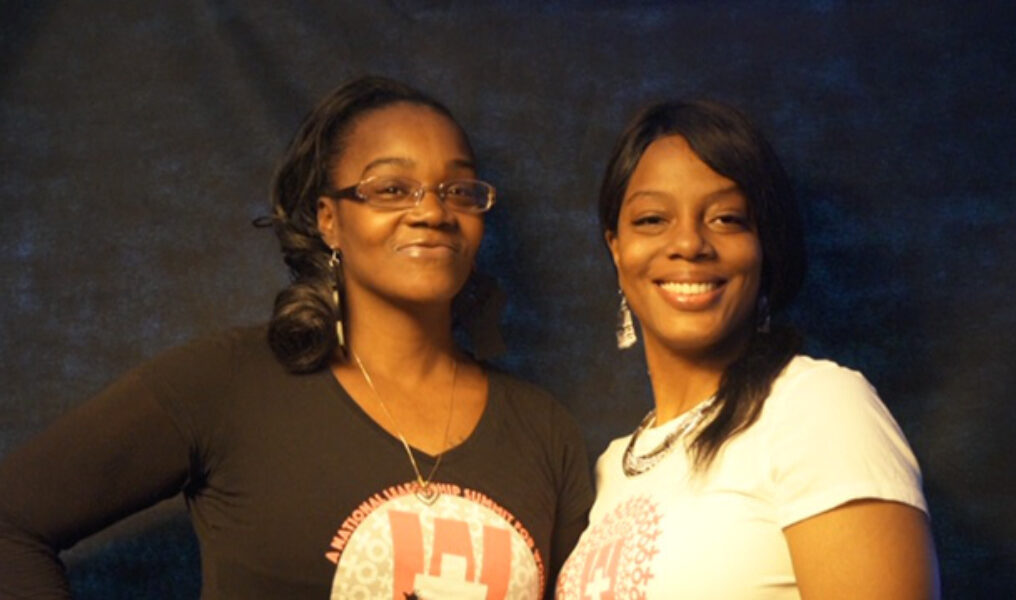Women living with HIV account for roughly 20 percent all individuals who have contracted the disease in the United States. As a minority group within an already marginalized community, women with HIV navigate a unique set of challenges that are oftentimes buried in mainstream education.
Positive Women's Network, a national membership body of women living with HIV, exists to address such issues. Founded in 2008 by 28 women, the body's mission is based around six priority issues: universal health care; economic justice; sexual and reproductive health, rights and justice; ending criminalization; trans rights, safety and justice; and ending violence against women living with HIV.
Chunnika Hodges, PWN-USA Michigan State Lead, has lived with HIV since 2006. Competing priorities such as work, motherhood and school present unique hurdles for women with HIV seeking treatment, Hodges said, on top of the universal stigma associated with the disease.
"We (women) also face the challenge of being economically stable or obtaining a livable wage," Hodges said. "In particular with women living with HIV, most do not have higher education to become employed with a livable wage … in most extreme cases, some turn to sex work because of the lack of financial resources."
Numerous studies indicate the ways in which gender shapes the HIV experience. According to PWN, studies show that over 60 percent of women living with HIV in the U.S. may have experienced intimate partner violence at some point in their lives. IPV can increase a woman's risk of contracting HIV through unprotected or rough sex, among other things, while the threat of violence may prevent a woman from disclosing her HIV status and subsequently seeking life-saving treatment.
"When it comes to HIV disclosure and safety, one must remember that history of violence or trauma can undermine a woman's ability to protect herself and engage in self care," Hodges said. "For example, a woman's fear of IPV can prevent her from refusing to have sex or even asking a partner to use a condom."
Such threats are compounded within communities of transgender, African-American and immigrant women. For example, Hodges said many immigrant women with HIV refuse to seek treatment outside the home for fear that their immigration status will be threatened. Transgender women who perceive or experience a lack of cultural competency in modern healthcare may also be dissuaded from treating for HIV.
On the criminalization front, Hodges says PWN works to repeal "archaic," "draconian" laws on the state and federal level that oppress the HIV community.
"Currently there are 32 states that make HIV exposure a crime," Hodges said. "Plus, relentless HIV stigma has fueled the prosecution and criminalization of hundreds of people with HIV in the U.S., even in states without an HIV-specific law."
For example, it's illegal in Michigan for PLHIV to engage in "sexual penetration" without disclosing their HIV status. However, neither the intent to transmit HIV nor actual transmission is required for prosecution.
"The law does not distinguish between sexual practices that could transmit the virus and those that pose no risk of transmission," Hodges explained. "If someone engages in penetration of other body parts that cannot transmit the virus, it is still defined as sexual penetration … the laws include low to no-risk behaviors such as oral sex."
HIV oppression takes many other forms across the country. PWN cites several cities that have or have had a "condoms as evidence" policy, which allows the possession of condoms to be used as the basis for a solicitation charge.
In New York, possessing what's considered "too many" condoms can be used as evidence of sex work. PWN supports the elimination of such policies as they discourage sex workers from protecting themselves, furthermore oppressing the sex work economy.
PWN is in firm support of decriminalizing sex work. Criminalizing the act leads to over-policing and incarceration of sex workers, PWN's mission statement reads, further increasing the vulnerability of sex workers to violence, abuse and exploitation.
"Sex work is work," LaDawn Tate, a student at PWN's Michigan chapter, said. "Decriminalizing it creates a sense of normalcy … our stance is that every woman deserves to live and work how she wants to work. Her body is her body."
In addition to decriminalizing sex work, Tate is especially passionate about promoting cultural competency in healthcare through PWN. As a heterosexual woman living with HIV, Tate said she failed to receive adequate treatment due to the stigma around the disease.
"HIV doesn't have a demographic," Tate said. "I'm a true ally of the LGBT community, but the thing is that because I don't fit in, because I'm not a part of that community, my doctor didn't ask me if I wanted an HIV test."
"It's not a demographic – it doesn't matter," Tate continued. "If you're having unprotected sex you're at risk of HIV."
Hodges agrees with Tate. "Some professionals in the medical field have their own personal biases, and they're not aware of their biases," she said. "They put that on the client when they come into the door. She didn't fit a certain demographic – not a sex worker, didn't have multiple partners. Her doctor didn't feel she was risk to acquire HIV."
Creating real change around HIV requires PWN members to meet with local and national leaders. This midterm election, PWN centered its efforts around getting out the vote and promoting progressive, diverse candidates. PWN reports its members reached over 10,000 voters, many of who were from underserved and low-turnout communities.
PWN is celebrating the election of Colorado's first openly gay governor, the record-number of women of color and LGBT winning candidates, as well as the victories for Democrats in the U.S. House. And in Michigan, Hodges and Tate were thrilled to see a win for Gretchen Whitmer, a leader they believe will be receptive to PWN's mission.
Moving forward, Hodges and her team hope to continue recruiting members while fostering strong leadership among its current team. Interested applicants are encouraged to visit pwn-usa.org to learn more about the organization's mission, values and opportunities for membership training.
PWN will continue to keep their finger on the pulse of the current White House administration. To follow the latest developments with PWN, visit the group's "Speak Up Blog" at pwn-usa.org/speak-up-blog/.
National Organization Highlights Experiences of Women With HIV










